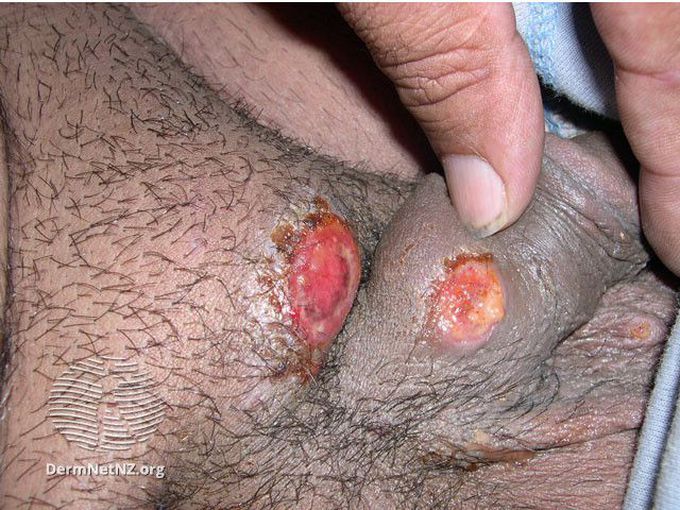


Granuloma Inguinale
Granuloma inguinale, also known as Donovanosis, is a sexually transmitted infection that is caused by a bacteria called Klebsiella granulomatis. It is commonly seen in sexually active individuals aged between 20 - 40 years and it can also be vertically transmitted during childbirth. The most commonly affected sites are the vulva, penis and anal region. The infection leads to the development of certain skin lesions if there is repeated exposure to the bacteria. Initially, it occurs as a papule or subcutaneous nodule and then eventually it ulcerates. The most common clinical presentation is a painless, beefy red ulcer that bleeds easily. Microscopic examination of the skin scrapings from the lesions show cytoplasmic 'Donovan bodies' which is why it is also known as Donovanosis. If left untreated, it can lead to enlargement of the ulcers and complications such as bleeding, secondary infection and extensive scarring of the genitals. Hence, prompt management with the use of preferred antibiotics is essential. Image source: dermnetnz.org

